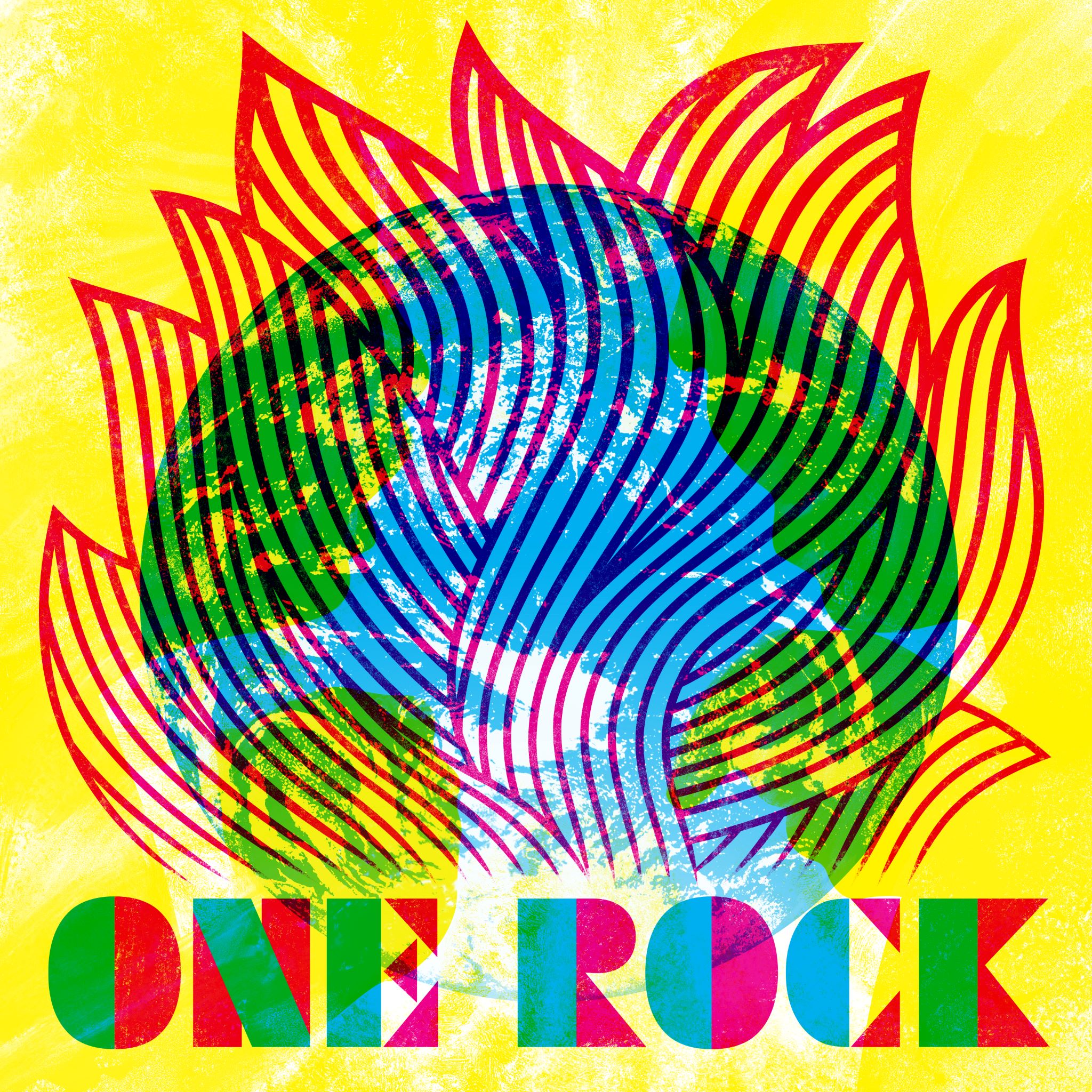Rock Ethnicity: The Untold Story Of Diversity In Rock Music
Rock music has always been about rebellion, passion, and authenticity. But have you ever stopped to think about the cultural roots and diversity behind this iconic genre? Rock ethnicity is more than just a term; it’s a celebration of the rich tapestry of influences that have shaped rock music into what it is today. From its blues and gospel roots to the global sounds that continue to inspire modern rockers, the story of rock ethnicity is one worth exploring.
Picture this: a guitar riff so powerful it shakes the walls, a drumbeat that makes your heart race, and lyrics that speak to the soul. Rock music isn’t just about the sound—it’s about the people who create it and the cultures they represent. Rock ethnicity delves deep into the origins of rock, uncovering the hidden stories of musicians from all walks of life who’ve contributed to its evolution.
As we dive into this fascinating topic, you’ll discover how rock music has embraced diversity and become a universal language that unites people from all corners of the globe. So, buckle up and get ready for a journey through time, sound, and culture. Let’s rock!
- Sophie Rain And David Dobrik The Ultimate Story You Need To Know
- Baldwin Brothers The Powerhouse Family In Hollywood
What Exactly is Rock Ethnicity?
Rock ethnicity refers to the diverse cultural influences and backgrounds that have shaped rock music over the years. It’s not just about the music itself but the people behind it—their stories, struggles, and triumphs. Rock music has always been a melting pot of cultures, drawing inspiration from African-American blues, Caribbean reggae, Latin rhythms, and more.
Let’s break it down:
- Rock music originated from African-American blues and gospel music, which laid the foundation for its sound.
- Latin and Caribbean influences have added a unique flavor to rock, especially in genres like salsa rock and reggae rock.
- Asian, Middle Eastern, and Indigenous musicians have also contributed to the evolution of rock, bringing their own cultural nuances to the genre.
Understanding rock ethnicity means recognizing and celebrating the diverse voices that have made rock music what it is today.
- Meet Siom Cowell The Rising Star In The Music Industry
- Angela Alvarez The Inspiring Journey Of A Remarkable Woman
A Brief History of Rock Music
Rock music as we know it today didn’t just appear out of thin air. It has deep roots in the African-American community, particularly in blues and gospel music. Artists like Muddy Waters, B.B. King, and Sister Rosetta Tharpe were among the pioneers who laid the groundwork for rock ‘n’ roll.
From Blues to Rock ‘n’ Roll
The transition from blues to rock ‘n’ roll was a natural evolution. Blues musicians started experimenting with faster tempos and electric guitars, creating a new sound that would soon take the world by storm. Chuck Berry, often referred to as the “father of rock ‘n’ roll,” was one of the first to blend blues with country and western influences, creating a sound that appealed to a wide audience.
The British Invasion
In the 1960s, British bands like The Beatles and The Rolling Stones took rock music to new heights. They were heavily influenced by American blues and rock ‘n’ roll, but they added their own unique twist, incorporating elements of classical music and British culture into their sound.
Rock music continued to evolve throughout the decades, with each generation adding its own cultural influences. From the psychedelic sounds of the 1960s to the grunge movement of the 1990s, rock has always been a reflection of the times and the people who create it.
Rock Ethnicity Around the World
Rock music isn’t just a Western phenomenon. It has traveled the globe, adapting to different cultures and influences along the way. Let’s take a look at how rock ethnicity has manifested in various parts of the world.
Latin Rock
Latin rock combines traditional Latin rhythms with rock music, creating a sound that’s both energetic and soulful. Bands like Santana and Los Lobos have been instrumental in popularizing this genre, blending rock with salsa, mambo, and other Latin styles.
Asian Rock
Asian rock has been gaining popularity in recent years, with bands from Japan, Korea, and China making waves on the global stage. Groups like Babymetal and BTS have successfully fused traditional Asian music with rock, creating a sound that resonates with fans worldwide.
African Rock
African rock draws inspiration from traditional African music, incorporating elements like polyrhythms and call-and-response vocals. Artists like Fela Kuti and Ali Farka Touré have been trailblazers in this genre, showcasing the rich musical heritage of Africa.
Rock ethnicity is a global phenomenon, proving that music knows no boundaries.
Breaking Barriers: Diversity in Rock Music
Despite its diverse origins, rock music has faced criticism for lacking diversity, particularly in terms of race and gender. However, things are changing, and more and more artists from underrepresented communities are breaking into the mainstream.
Here are some ways diversity is being celebrated in rock music:
- Women-led rock bands like Sleater-Kinney and Haim are challenging the male-dominated status quo.
- Artists of color, such as Lenny Kravitz and Goody Grace, are gaining recognition for their contributions to the genre.
- Indigenous musicians like Buffy Sainte-Marie and A Tribe Called Red are using rock music to tell their stories and preserve their cultural heritage.
By embracing diversity, rock music is becoming more inclusive and representative of the world we live in.
The Role of Technology in Shaping Rock Ethnicity
Technology has played a significant role in shaping rock ethnicity, making it easier for musicians from all over the world to collaborate and share their music. Platforms like Spotify and YouTube have given rise to a new generation of global rock stars, allowing fans to discover artists from different cultures and backgrounds.
Streaming Platforms
Streaming platforms have democratized the music industry, giving independent artists the opportunity to reach a global audience. This has led to a surge in diverse rock music, with artists from all corners of the globe gaining exposure.
Social Media
Social media has also played a crucial role in promoting rock ethnicity. Artists can now connect directly with their fans, share their stories, and showcase their cultural influences. This has helped to break down barriers and create a more inclusive rock community.
Technology has made it easier than ever to celebrate the diversity of rock music, and the future looks bright for rock ethnicity.
Rock Ethnicity in the Modern Era
In today’s digital age, rock ethnicity is more relevant than ever. With the rise of global rock stars and the increasing diversity of the genre, rock music is becoming a true reflection of the world we live in.
Global Rock Festivals
Festivals like Rock in Rio and Download Festival are bringing together rock musicians from all over the world, showcasing the diversity of the genre. These events provide a platform for artists to share their cultural influences and connect with fans from different backgrounds.
Rock Music in Pop Culture
Rock music continues to influence pop culture, with its diverse sounds and stories resonating with audiences worldwide. From movies to TV shows, rock ethnicity is being celebrated in new and exciting ways.
As rock music continues to evolve, it’s important to recognize and celebrate the diverse voices that have shaped its history and will shape its future.
Challenges Faced by Rock Musicians of Color
While rock music has come a long way in terms of diversity, there are still challenges faced by musicians of color. From racial stereotypes to lack of representation in the industry, these artists often have to work harder to gain recognition.
Here are some of the challenges faced by rock musicians of color:
- Racial stereotypes and biases in the music industry.
- Limited opportunities for artists of color to perform on major stages.
- Difficulty in securing funding and resources for their projects.
Despite these challenges, rock musicians of color continue to push boundaries and break barriers, proving that rock ethnicity is here to stay.
How You Can Support Rock Ethnicity
Supporting rock ethnicity is all about celebrating diversity and promoting inclusivity in the music industry. Here are some ways you can get involved:
- Listen to and support artists from underrepresented communities.
- Attend concerts and festivals that showcase diverse rock music.
- Spread the word about rock ethnicity and its importance in the music world.
By supporting rock ethnicity, you’re helping to create a more inclusive and representative music industry.
The Future of Rock Ethnicity
The future of rock ethnicity looks bright, with more and more artists from diverse backgrounds gaining recognition and breaking into the mainstream. As technology continues to evolve, it’s becoming easier for musicians to collaborate and share their music with a global audience.
Here’s what the future holds for rock ethnicity:
- Increased representation of diverse voices in the music industry.
- More global rock festivals and events celebrating rock ethnicity.
- Continued innovation and experimentation in rock music, drawing inspiration from cultures around the world.
Rock ethnicity is here to stay, and the future is looking brighter than ever.
Conclusion: Celebrating Rock Ethnicity
In conclusion, rock ethnicity is a celebration of the diverse cultural influences that have shaped rock music into what it is today. From its African-American roots to the global sounds that continue to inspire modern rockers, rock music is a true reflection of the world we live in.
We encourage you to explore the rich history of rock ethnicity, discover new artists, and support diversity in the music industry. Share this article with your friends and family, and let’s continue the conversation about the importance of rock ethnicity.
Together, we can create a more inclusive and representative music industry that celebrates the diversity of rock music.
Table of Contents
- What Exactly is Rock Ethnicity?
- A Brief History of Rock Music
- Rock Ethnicity Around the World
- Breaking Barriers: Diversity in Rock Music
- The Role of Technology in Shaping Rock Ethnicity
- Rock Ethnicity in the Modern Era
- Challenges Faced by Rock Musicians of Color
- How You Can Support Rock Ethnicity
- The Future of Rock Ethnicity
- Conclusion: Celebrating Rock Ethnicity



Detail Author:
- Name : Ardith Kunde I
- Username : cormier.skylar
- Email : mia.rohan@hotmail.com
- Birthdate : 1991-11-18
- Address : 341 Garett Islands Savannaton, MA 27907-0040
- Phone : (607) 777-4176
- Company : Kuhlman Ltd
- Job : Shampooer
- Bio : Voluptate sed saepe recusandae maxime eius. Eum autem quaerat dolor voluptates omnis nostrum. Porro quidem debitis ab beatae. Est accusamus ut architecto magni.
Socials
tiktok:
- url : https://tiktok.com/@aftonmonahan
- username : aftonmonahan
- bio : Voluptates in cumque officiis aperiam.
- followers : 865
- following : 331
facebook:
- url : https://facebook.com/monahana
- username : monahana
- bio : Quae possimus officia est quas ullam voluptas.
- followers : 5835
- following : 958
instagram:
- url : https://instagram.com/monahan1991
- username : monahan1991
- bio : Numquam et expedita quae enim error laborum iste. Fuga iste perferendis voluptas ut minima placeat.
- followers : 5643
- following : 1416
twitter:
- url : https://twitter.com/afton_xx
- username : afton_xx
- bio : Nesciunt et explicabo quos nemo vel. Sed et id voluptate est eum doloremque dolorem.
- followers : 2991
- following : 1962
linkedin:
- url : https://linkedin.com/in/amonahan
- username : amonahan
- bio : Ipsa id sit modi temporibus.
- followers : 6590
- following : 560